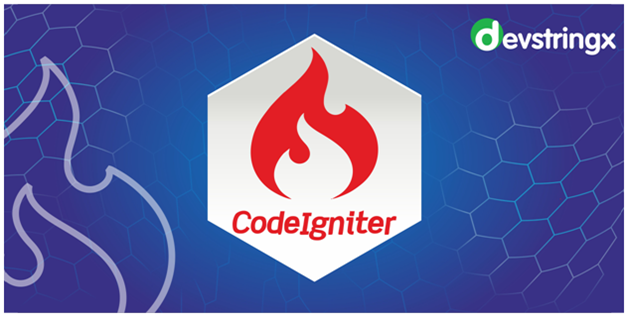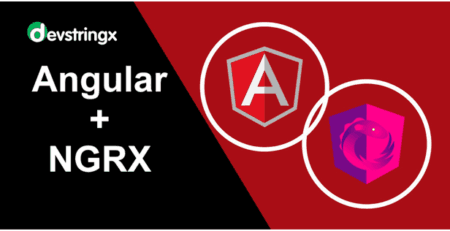12 Top Features, characteristics of JavaScript You Must Know – Devstringx
Features of Javascript
Learning programming languages is an incredibly rewarding experience, as it opens up a whole new world of possibilities. While some may be intimidated by the thought of learning even one language, JavaScript offers a number of advantages to beginner coders and experienced veterans alike.
Well known for its versatility and powerful applications, this versatile scripting language can help you create interactive elements on webpages, create robust online games or apps, and access database information with just a few lines of code. In this blog post, we will explore the javascript features that have made JavaScript so popular among developers today.
What Is Javascript?
Javascript is a computer programming language used to make websites interactive. Think of it like walking into an empty room: your webpage won’t be anything without Javascript granting it life. Fun interactive elements like drop-down or animated menus, automated forms, and dynamic page content are all possible because of Javascript. So while you may not know what’s going on under the hood, if you want your webpages to do cool things, consider giving Javascript a try!
JavaScript is essential for the modern web, offering developers dynamic and interactive features that create an immersive experience. With unique JavaScript features, we can bring a website to life with content updates in real-time, unique map interfaces, captivating animations, and graphics – all building on the foundations of HTML & CSS. It’s this three-layer cake that creates engaging websites today!
12 Top Features/Characteristics of JavaScript
Below we shared the 12 Javascript features that make Javascript different from the other languages. Please check out the below features of Javascript
-
Scripting Language
JavaScript is an incredibly powerful scripting language, designed specifically for powering immersive web applications. With its lightweight, browser-side execution capabilities and tailored libraries aimed at providing the best possible experience in a variety of scenarios – this versatile programming tool packs quite the punch!
-
Interpreter Based
JavaScript offers unique advantages over traditional compiled languages like Java and C++. By allowing a browser to interpret its code, line by line in real-time, JavaScript reduces the complexity of development without sacrificing speed or power. This makes it an ideal choice for developers looking to create robust web applications with relative ease compared to compilers such as those used for Java and C++ programs.
-
Validation of User’s Input
Form validation is an integral part of the user experience on web pages, allowing clients to ensure accuracy when users are entering data into forms. By offering this service, both parties can be sure that all relevant details have been correctly filled out – a key step in any successful interaction!
-
Ability to Perform In-build Function
Java Script boasts a wide repertoire of helpful In-Built Functions like isNAN (), Number(), parseFloat(), and parseInt(). These functions come in handy for verifying numbers, converting objects into numerical values, and analyzing strings – making it easier than ever to work with data!
-
Case Sensitive Format
When programming in JavaScript, it’s best to be mindful of the case – capitalization matters! That means if a code is written with one letter UPPER-cased and another lower-cased, chances are you’ll get different results.
-
Light Weight and Delicate
JavaScript is an incredibly lightweight and dynamic programming language, allowing for efficient code creation without the need to declare variables. Instead, only objects are required in order to carry out all operations.
-
Statements Looping
Looping is a powerful tool used to execute the same code multiple times, allowing developers to automate tedious and time-consuming tasks easily. This technique can be employed with specified or indefinite repetition – giving software engineers more control over their workflow!
-
Case Sensitive
JavaScript takes its spelling seriously! Every keyword, variable, and function has a strict capitalization policy – no exceptions are allowed.
In programming, the smallest change can make a huge difference – just look at variables! For example, if you name your variable “hit counter”, it won’t confuse with another – even though its counterpart is named “hit counter”. This goes to show that all keywords such as “var” must always match their case.
-
Control Statements
JavaScript is a powerful programming language that allows developers to conquer tasks of any complexity, by leveraging control statements such as if-else-if and switch-case or loops like for, while, and do-while. With JavaScript at their side, the possibilities are endless!
-
Dynamic Typing
JavaScript has the freedom to fly! Unlike other languages, its dynamic typing allows for variable declarations that are not explicitly stated – making it a unique and highly versatile language.
-
Async Processing
JavaScript leverages Promises and Async functions to enable asynchronous behavior, helping improve the performance of web pages. With Promises, requests can be made followed by a .then() clause that only runs when the promise is fulfilled — or you can use async-await syntax functions for parallel execution resulting in faster page loading times.
-
Prototype-based
The way code is written has been revolutionized with JavaScript’s prototype-based scripting language, which allows for quicker development cycles and efficient use of memory. Rather than using classes to determine object types, it makes use of a prototypal inheritance model – much like an Object factory method.
This pattern can be found throughout JavaScript code, optimizing the speed and reliability of coding projects. To know more about javascript. visit our existing blog.
Final Words
JavaScript has become an incredibly popular language for developers worldwide and with good reason. Its well-structured codebase provides improved readability, accessibility, and productivity – not to mention the sheer enjoyment that comes from working with it!
With so many advantages, it’s no wonder why JavaScript reigns supreme in the programming world. With that said, we encourage you to explore its depths and see for yourself just how powerful this language can truly be!
The versatility and power of Java Script are too hard to ignore. It’s an incredibly user-friendly language ideal for both beginner and seasoned programmers alike. From efficient data manipulation tools to asynchronous processing methods – this scripting language has everything you need to take your projects from ordinary to extraordinary!
Whether you’re a web developer or simply curious about what makes JavaScript special, understanding these javascript features will set you on the path toward successful coding endeavors. So don’t hesitate―to give Java Script a try today and unlock the full potential of this amazing programming language!
We could go on about all the great features of javascript but instead, we’ll ask you: what other possibilities do you think JavaScript holds? Share your thoughts in the comments below!
FAQ
- What are the advantages of JavaScript?
JavaScript has many advantages, including its versatility, cross-browser compatibility, ease of use, interactivity, and client-side scripting.
- What are the uses of JavaScript?
JavaScript can be used for web development, mobile app development, game development, desktop app development, and more.
- What is an example of JavaScript?
One example of JavaScript is a form validation script that checks the validity of user-entered information before it is submitted.
- What are the types of JavaScript?
A: There are three types of JavaScript: ES5, ES6 (ECMAScript 2015), and ES7+. Each version of JavaScript adds new features and capabilities to the language.
- What are the features/characteristics of JavaScript?
Some characteristics of JavaScript include:
- Interpreted Language: JavaScript is an interpreted language, meaning it doesn’t need to be compiled before it can be executed.
- Dynamic Typing: JavaScript is dynamically typed, which means that variables can change their type at runtime.
- Object-Oriented: JavaScript is an object-oriented language, which means it supports objects and classes.
- What are the types of JavaScript?
The three types of JavaScript are ES5, ES6, and ES7+.
- What are some new features of JavaScript?
Some new features of JavaScript include optional chaining, nullish coalescing, Promise.allSettled(), and BigInt.
Related Post:-














